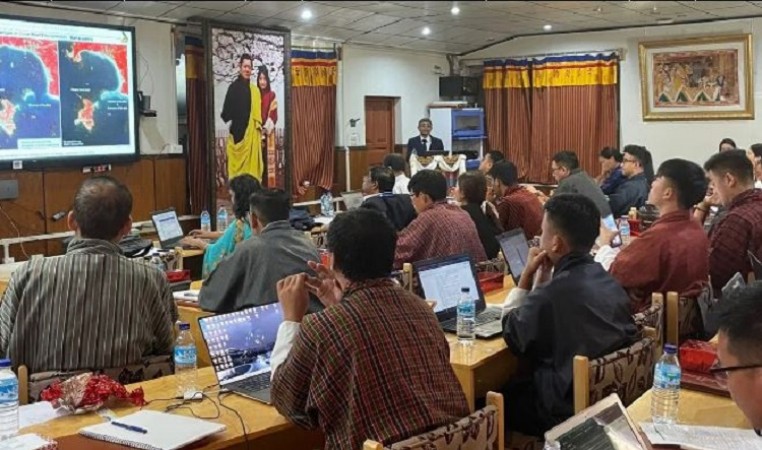
THIMPU: Indian Space Research Organisation (ISRO) is conducting training for Bhutanese officials in the field of remote sensing applications to enhance governance. A team of ISRO experts hailing from the Indian Institute of Remote Sensing (IIRS), the Space Applications Centre (SAC), and the National Remote Sensing Centre (NRSC) is conducting a comprehensive five-day training program in Thimpu. This program is aimed at educating officials from the Royal Government of Bhutan about the practical applications of remote sensing technologies for the purpose of effective governance. The experts from ISRO are actively sharing their technical knowledge on how remote sensing applications can be harnessed to benefit the population of Bhutan.
India first recognized the advantages of utilizing domestic remote sensing capabilities following the launch of the Indian Remote Sensing satellite-1A (IRS-1A) in March 1988, from the then-Soviet cosmodrome in Baikonur. Thanks to the valuable imagery acquired by this satellite, Indian officials were able to monitor land use, estimate groundwater potential, observe ecosystems, and plan large-scale infrastructure projects like the Bengaluru Ring Road. Now, ISRO is extending its expertise to its neighboring country, Bhutan, to help them acquire similar capabilities and reap the associated benefits.
In November 2022, ISRO's PSLV-C54 rocket successfully deployed the India-Bhutan satellite, commonly referred to as the Bhutan satellite, and ISRO Nano Satellite-2 for Bhutan (INS-2B). These two payloads on the satellite, one dedicated to remote sensing and the other functioning as a repeater, were the result of a collaborative effort between Indian and Bhutanese scientists. Subsequently, in March of this year, the ground station for the India-Bhutan satellite was officially inaugurated in Thimphu.
The collaboration between India and Bhutan dates back to the South Asia Satellite initiative, which was conceived by Narendra Modi as a part of his "neighborhood first" policy. This geosynchronous satellite was equipped with communication capabilities for all SAARC countries, with the exception of Pakistan, which declined the offer. Bhutan was allocated a dedicated transponder and even requested additional capacity, a request that was promptly granted.
Meet Prakhar Vishwakarma: The 16-year-old Missile Marvel